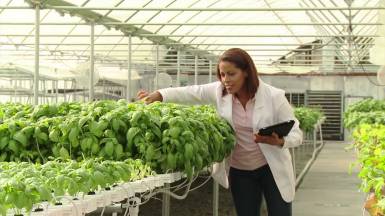How Agricultural Engineering can be beneficial to the modern ways of farming
 Posted date: 11 Mar 2021
Posted date: 11 Mar 2021
Agriculture is both a theoretical research and a practical application of the agricultural field, such as cereal cultivation. The past few centuries have seen farming becoming a science after inventions and technologies ranging from the seed drill to fertilizing crops by drone. In one of the top countries, for instance, technological advances have seen the percentage of the population in the agricultural sector decline from 69% in 1840 to 4% in 2000.
The branch of engineering dealing with the design, development and improvement of agricultural equipment and machinery is Agricultural Engineering. Agricultural engineers combine farming with technology. They build, for example, new and improved farming equipment that can function more effectively or carry out new tasks. Agricultural infrastructure such as dams, water reservoirs, warehouses and other facilities are being planned and constructed. They can also assist in engineering solutions at broad farms for pollution control. New types of bio fuels are being produced by some agricultural engineers from non-food resources such as algae and agricultural waste. Without jeopardizing the food supply, such fuels could economically and sustainably replace gasoline.
Degrees in agricultural engineering prepare students in many areas of agriculture to work professionally. Subsets of studies belonging to the agriculture classification provide limitless opportunities for participation in this area. Agricultural engineering demand has risen over the last 10 years. Agricultural engineering degrees cover all facets of the industry, ranging from water and waste problems, large food and livestock farming, water farming, agricultural machinery and agricultural economics to genetically modified maize and cows.
The first degree to be awarded is a Bachelor of Science. Earning a degree provides learners with knowledge of textbooks and a hands-on view of their chosen area. A well-rounded education is supported by fieldwork and laboratory experiments combined with practical practice. Although graduating in agricultural engineering, every other area may be a student minor. For example, graduate students are able to obtain a variety of advanced degrees, including the Master of Science, the Master of Engineering, the Master of Agriculture, the Doctor of Philosophy and the Doctor of Engineering, in order to develop their food engineering major. Such students may concentrate on bioacoustics, biomaterials technology, bioprocess engineering, environmental and natural resource engineering, food engineering, processing of food, feed and fiber, machinery and energy systems, and analysis of systems.
An agricultural degree would make you an invaluable employee in several big companies due to a lack of expertise in the agricultural industry. Secure a place and work in a demanding, but powerful field of the engineering world as an engineering technologist, agricultural engineer, technical officer or sales and support consultant.
Posted By

GSP Admin




